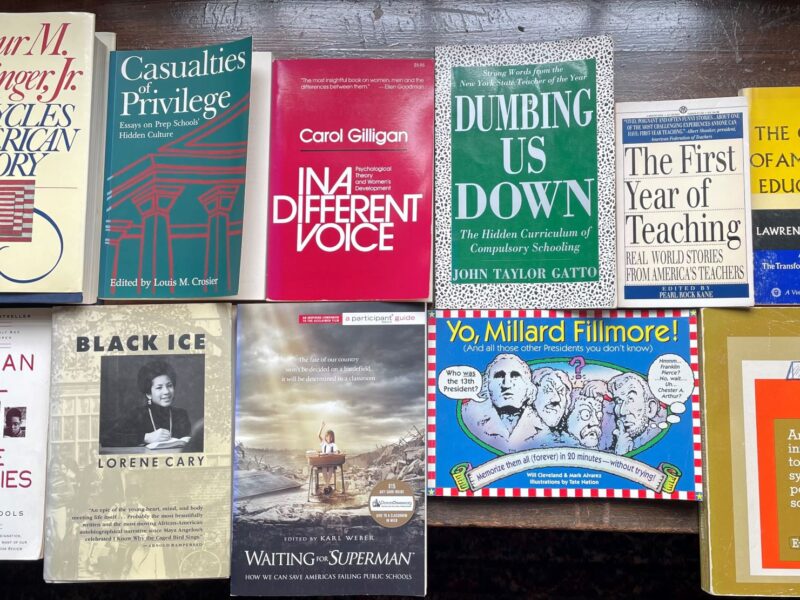Ego v. Conscience ‑ “I have a problem” v. “I am a problem.”
In our efforts to offer a character-based education, Hyde has become recognized nationally as particularly adept at working with so‑called “problem kids.” Our success in this regard has been featured on national network programs such as TODAY, 20-20, and 60 MINUTES. As a result, we sometimes encounter the “fix‑it” family: a family having difficulties with a teenager who perceives Hyde, something that requires a long-term total commitment, as a shortcut to family problem-solving.
Let’s say that this teenager enrolls at Hyde and growth occurs. Grades improve, the student participates in performing arts productions, and gets in excellent physical condition on our athletic teams. After a year, the family might thank us and return home whereupon it is not uncommon for the student to return to former ways in short order. (And just as bad, sometimes the student floats along S.N.A. — slightly north of acceptable — a far cry from his or her potential.)
When a student is under-performing or acting off-track, we ask the parents to suspend their belief that the problem is their son or daughter and instead consider the notion that there is a deeper issue within the family that is currently being expressed through this particular family member. At Hyde, we try to look beyond outward evidence of success (e.g., standardized test scores, grades, awards, sports records, etc.) and instead try to focus on developing positive attitudes. A family may come to Hyde and think, “Well, what have we got to lose? Let’s try this attitude thing for a while.” Secretly the parents may hold onto the preoccupation with awards and grades. We then end up at cross purposes. The school is stressing character development but the kid knows (The kids always know the true motivations of their parents!) that Mom and/or Dad are not in it for the long haul. The student will then gauge his or her efforts accordingly.
Every person and every family experiences personal problems. Consider the distinction between “I have a problem” and “I am a problem.” In the first statement, the individual may not view solving the problem as a means to an end, may not connect the solution to a higher purpose. Thus, the problem will inevitably be viewed as a negative. A student might think, “My life would be perfect if not for these low grades.” A parent might think, “Our family would be perfect if only my son/daughter would get off drugs.” Problems in this context are viewed as things to be avoided and can result in narrow horizons and/or lower expectations. (i.e. One way to avoid problems would be to try less or to accept a lesser lot in life.)
A family tied to its ego more than its conscience often perceives that it “has” a problem. A commitment to Unique Potential encourages one to perceive that “I am a problem” to myself if I truly want to connect with my destiny. Problems are an inevitable occasional outcome of our attempts to go after our respective bests. In this context, problems are not the object of shame, they are the signs of our attempts to be all that we can be. Life then finds us setting new goals and facing new problems as we strive to meet those goals, and so on. Problems become viewed as reflections of conscience.
This is not to minimize problems. It’s just that we don’t dwell on problems at Hyde. Instead, we have learned that it is more fruitful to focus on high goals accompanied by high expectations. In such an environment, individuals must “let go” of problem behavior. Perhaps it’s fair to say that in character education, problems take a back seat to goals.
Next: Truth v. Harmony
Onward, Malcolm Gauld


